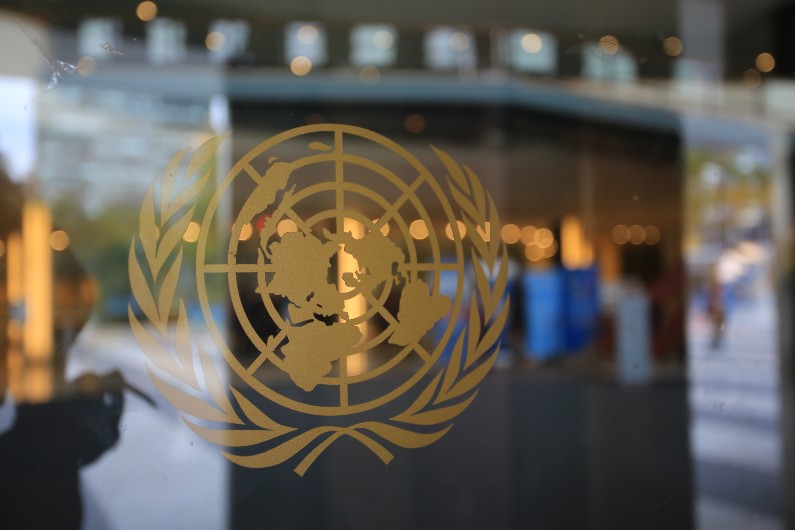
Australian ambassador to the United Nations (UN) James Larsen has joined international calls for a two-state solution to the ongoing conflict between Israel and Palestine.
Australia was one of 143 countries to vote for greater recognition of Palestine in the General Assembly over the weekend. The United States was one of nine countries that voted no, and 25 — including the UK — abstained.
The vote upgrades Palestine’s rights as an observer state, without granting membership or voting rights.
Larsen said the lack of progress on a two-state solution had driven Australians to support the resolution.
“Like many other countries, our vote for this resolution is not bilateral recognition of Palestinian statehood. Nevertheless, Australia no longer accepts that recognition can only come at the end of the peace process,” he said.
“Australia has long believed a two-state solution offers the only hope for breaking the endless cycle of violence and achieving lasting peace. Like many Member States, Australia has been frustrated by the lack of progress. There is a role for the international community to build momentum, set expectations that parties resume negotiations for tangible progress and to support efforts for a political process.
“While this resolution is not what we would propose, it is for all these reasons that Australia voted yes.”
While the vote recognises Palestine’s eligibility for membership to the UN, full membership is unlikely in the near future. US sanctions against the Palestinian Liberation Organisation (PLO) mean that the United States would be obliged to halt funding worth up to $18 billion a year to UN bodies that accept PLO representatives as members. This happened in 2011, when UNESCO accepted Palestine as a member state. It took more than a decade for the United States to raise legislation to allow Palestine to rejoin.
Full membership to the United Nations must be approved by the Security Council, of which the US is a member. While the resolution passed by the General Assembly asks them to “reconsider the matter favourably”, it remains an unlikely prospect.
Since 1949, the United States has used more than half of all Security Council vetoes to prevent resolutions that were critical of Israel. More than 30 have been concerned with Israel’s occupation of Palestinian territory or treatment of Palestinian civilians. This shows little sign of change.
When the resolution takes effect in September, the Palestinian representatives will gain the right to:
- be seated among Member States in alphabetical order;
- make statements on behalf of a group;
- submit proposals and amendments and introduce them;
- co-sponsor proposals and amendments, including on behalf of a group;
- propose items to be included in the provisional agenda of the regular or special sessions and the right to request the inclusion of supplementary or additional items in the agenda of regular or special sessions;
- have the right of members of the delegation of the State of Palestine to be elected as officers in the plenary and the Main Committees of the General Assembly; and
- have full and effective participation in UN conferences and international conferences and meetings convened under the auspices of the General Assembly or, as appropriate, of other UN organs.
Larsen said Australia was listening to and balancing the concerns of both Israelis and Palestinians.
“We have been clear there is no role for Hamas in a future Palestinian state. Such a state cannot be in a position to threaten Israel’s security. Reform of the Palestinian Authority is required, and direct negotiations will be needed on final status issues, including Jerusalem and borders,” he said.
“We have listened to Israel’s concerns. Australia will always remain committed to Israel’s right to exist in peace and security. We believe a two-state solution is the only way to ensure this.
“We know this vote won’t resolve the immediate crisis. A humanitarian ceasefire in Gaza is needed urgently, the catastrophic humanitarian situation must be addressed and Hamas must release all hostages.”
READ MORE:

